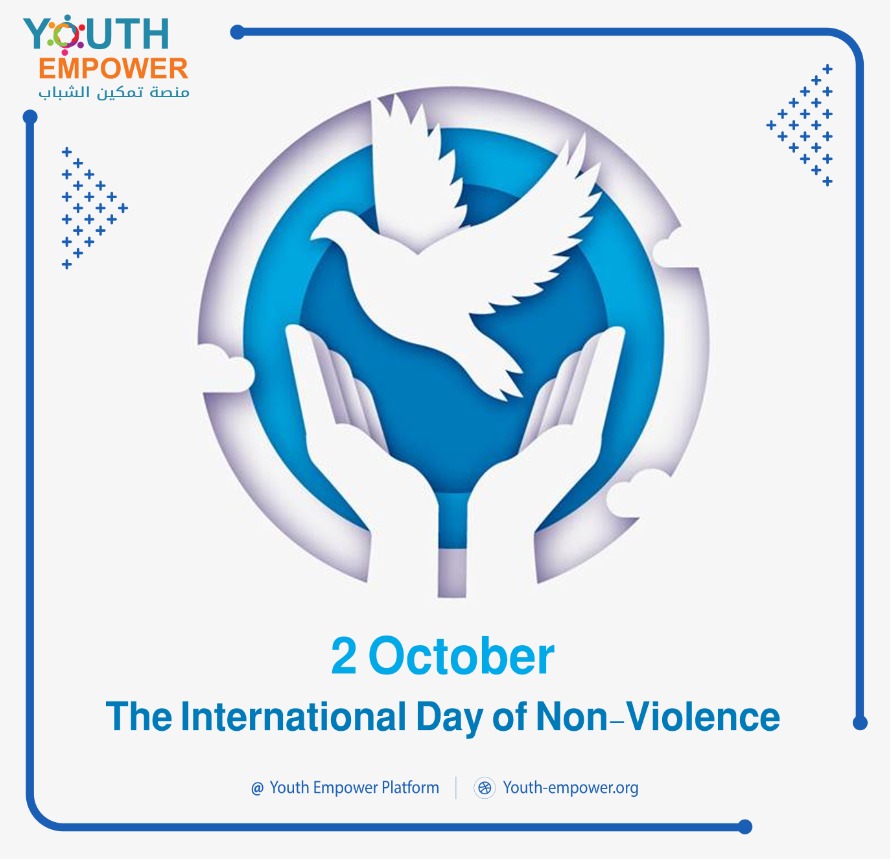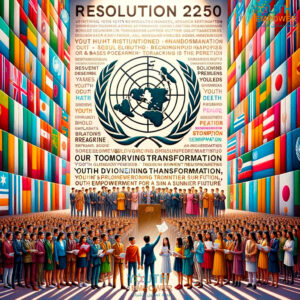The International Day of Non-Violence – October 2
The International Day of Non-Violence is celebrated annually on October 2nd, a day dedicated to promoting the culture of peace and non-violence worldwide. This day coincides with the birthday of Mahatma Gandhi, the pioneer of nonviolent resistance in India, who is regarded as a global symbol of peaceful resistance. The United Nations designated this day in 2007 to spread the values of tolerance, respect, and dialogue.
The Importance of the International Day of Non-Violence:
This day aims to establish the principle that non-violence is not just a tool for political struggle but also a way of life and an effective instrument for social change. In a world facing tensions and conflicts, the International Day of Non-Violence serves as a call to reflect on how to use dialogue and peaceful means to resolve disputes instead of resorting to violence.
The International Day of Non-Violence and the History of Peaceful Struggle:
The non-violence movement began with Mahatma Gandhi, who used this principle to liberate India from British colonialism.
His philosophy of “Satyagraha” or “Truth Force” became a model for peaceful movements worldwide. Later, various human rights and social justice movements in different countries adopted non-violence, such as the Civil Rights Movement in the United States led by Martin Luther King Jr.
The Impact of Non-Violence on Youth:
Young people are the most affected by conflicts and disputes, especially in regions experiencing security challenges.
This day is an opportunity to encourage youth to adopt a lifestyle based on dialogue and peaceful conflict resolution.
In this context, institutions and organizations concerned with youth empowerment play a crucial role in guiding young people toward active participation in peacebuilding processes.
The Efforts of the Youth Empower Platform in Promoting the Culture of Non-Violence:
The Youth Empower Platform plays a vital role in promoting the culture of non-violence among Syrian youth. The platform aims to create an inspiring and supportive environment that encourages young people to participate actively in various fields. It also provides training and awareness programs that aim to promote the values of dialogue and non-violence.
Connection to Youth, Peace, and Security Issues:
The International Day of Non-Violence is closely linked to youth, peace, and security issues, as highlighted in the “Youth, Peace, and Security: Programming Handbook” prepared by the United Nations. This handbook focuses on integrating youth into peacebuilding and non-violence efforts.
It aims to encourage institutions and communities to involve youth in peace processes and empower them to address challenges in conflict settings.
The International Day of Non-Violence and Youth in the Arab Region:
The Arab region is among the areas that face the most challenges of violence and conflicts, where youth encounter significant obstacles that hinder their participation in development processes. According to the United Nations Human Development Report, youth in the region face social and economic exclusion, underscoring the need to empower them and involve them in peace building efforts.
Recommendations to Promote the Culture of Non-Violence among Youth:
- Provide training programs that aim to enhance dialogue skills and peaceful communication among youth.
- Empower youth to participate in political processes and encourage them to use non-violence as a tool for social and political change.
- Engage youth in peacebuilding initiatives, and work on strengthening their role in society as active contributors to promoting the culture of non-violence.
The International Day of Non-Violence serves as a reminder to communities about the importance of resorting to peaceful means to resolve conflicts and promote the values of tolerance and dialogue. By involving youth in these efforts, positive change can be achieved, and a future of peace and stability can be built.
Follow us on social media:




